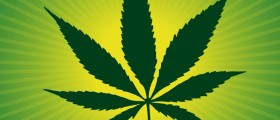
Ever since the dawn of the “Information Age”, that is to say of the mid 80s, the pace of the general public's lifestyle has accelerated drastically, thus, naturally, leading to a higher rate of caffeine use.
The purpose of this article is to take a closer look at caffeine, the effects it has on the human body's chemical balances, and the possible resulting side effects.
First off it is important to make clear that caffeine is, after all, a drug. And a stimulant. That means that it increases many of the psychological responses. Bluntly put, it causes a rush of energy to run through the body and makes one feel less tired and more alert. Negatively, this same effect may lead to anxiety attacks, sleep deprivation et cetera.
Caffeine, like many other stimulants, may have a variety of effects, depending on the particular person's chemistry. That involves taking into account the amount of caffeine consumed, as well as the amount of caffeine absorbed by the body. The effects of a cup of morning coffee may last briefly or all day long, also deepening on the said chemical balances.
Side Effects
One of the certain effect of caffeine is the increase of heart beat rates, heightened blood pressure and adrenaline rushes. This is exactly the effect which leads to the aforementioned anxiety attacks. The ironic thing about this is that people sometimes consume caffeine because they are under pressure, and have got a lot of anxiety to vent out, yet they, interestingly enough consume the very chemical which is most likely to tip that balance even further.
Furthermore, caffeine may be the cause of skeletal muscle tension. The said tension may be distracting on several levels, may cause fatigue, increase the probability of muscle spasms, and so forth. It also particularly contributes to the tension of the muscles in the jaw, neck and shoulders.
Avoiding improper intakes of caffeine is highly recommended for people with chronic muscle tensions as well, out of obvious reasons.
Being a drug, caffeine has its addictive properties as well – both physical and psychological. If a person should consider discontinuing regular use of caffeine, it is recommended that it should be done gradually rather than cold turkey, as the effects of withdrawal may be more drastic than expected.
Positively, caffeine may be a suitable instrument in relieving oneself of certain types of headaches and may be used in the treatment of other unpleasant physical conditions.
Conclusively, taking into account the pace of our zeitgeist, the morning brew is almost an imperative for some people, so recommending going mormon on the habit may sound a bit harsh, while overdoing it is clearly counterproductive. Ultimately, self-control and practicing moderation is the best idea for the daily coffee drinker.

















Your thoughts on this
Loading...